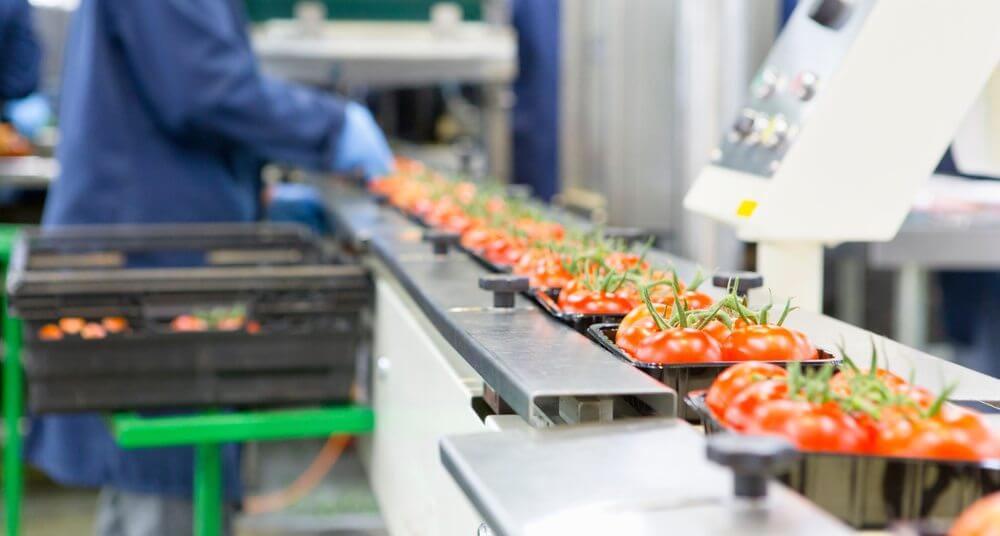Midlands Food and Drink Skills Audit highlights challenges faced by the Irish food and drinks industry locally and globally.
Challenges in talent, skills and innovation need to be addressed if the Irish food and drink industry is to continue to enjoy growth.
These were among the key findings in the recently completed Food and Drink Skills Audit, conducted by the Technological University of the Shannon (TUS) in collaboration with the Midlands Regional Enterprise Plan (MREP).
“There’s a clear desire to succeed in business while benefiting the region through sustainable job creation”
The report found that companies in the sector face significant challenges in recruiting staff with the necessary skills in food safety, sales, management, and technical expertise.
Food for thought
Strategies to address these gaps include training programs, partnerships with educational institutions, and enhanced promotion of the indigenous food and drink sector as a fulfilling career path over other competing industries.
The qualitative research reiterates the importance of maintaining food and drink-related courses despite fluctuating student demand. It also highlights the necessity of attracting skilled educators to these programs to address shortages in areas like home economics.
Sustainability emerged as a critical focus for SMEs, with businesses actively implementing eco-friendly practices. However, challenges such as high costs and the need for supportive measures in materials sourcing and renewable energy were noted.
There is a strong willingness among companies to collaborate with other SMEs, educational institutions, and industry bodies. Such collaborations aim to address common challenges through knowledge sharing, joint marketing efforts, and shared resources.
The audit identifies ten essential skills areas for future growth, including data analysis, digital literacy, food safety, nutrition, regulatory knowledge, soft skills, supply chain management, sustainability, technical robotics, and scientific knowledge. These reflect the multifaceted nature of the food and drink industry, emphasising the need for a broad and advanced skill set.
“We had excellent participation from SMEs and stakeholders across the region, demonstrating their passion for the food and drink industry,” said Dr Anthony Johnston, director of Research Development at TUS. “There’s a clear desire to succeed in business while benefiting the region through sustainable job creation.
“We need to continue to invest in education relating to the food and drink industry, including at both craft and management level. This industry intersects with many disciplines, including food science, culinary arts, business management, marketing, and tourism, among others, and it’s important to focus on its continued development as these sectors will offer young people in the region many opportunities for employment and professional development.”
To address these findings, the report outlines eight key recommendations:
- Establish a learning journey for stakeholders to visit successful food regions abroad.
- Create a centralised website promoting all food-related courses in the region.
- Invest in food tourism pride through continuous workshops and training events.
- Develop additional markets and events in the region.
- Offer training courses on food visitor attraction development.
- Implement a short-advanced program on the Future of Food in Regional Europe.
- Fund a post-graduate research student to support policy development.
- Retain existing food and drink-related skills programs during low demand cycles.
“This initiative is a crucial part of our regional food and drink strategy, which aims to promote indigenous consumption, exports, and visitor engagement through education, marketing, business supports, and continuous improvement, with a strong focus on sustainability,” said Dr Anne Cusack, chair of the Midlands Regional Enterprise Plan Steering Committee.
“The Midlands is home to some of the finest food and drink producers in the country with a wide selection of award-winning products from across the region so it’s more important than ever that we support this industry so that it can continue to thrive.”
Main image at top: Caren Carruthers, Failte Ireland, Elaine Negi, Bord na Mona, Jackie Carroll, Laois Chamber Alliance, Dr Anthony Johnston, Technological University of the Shannon, Evelyn Reddin, Laois Local Enterprise Office and Co-Chair of the Midlands Food and Drink Strategy, Minister for Enterprise Trade & Employment, Peter Burke TD, Emmet Kavanagh, Midlands Ireland, Dr Anne Cusack, Chair of the Midlands Regional Enterprise Plan, John Costello, Midlands Regional Skills Forum, Mark Atterbury, Enterprise Ireland, Declan Coppinger, Bord Bia and Sarah Morgan, Midlands Regional Enterprise Plan
-
Bank of Ireland is welcoming new customers every day – funding investments, working capital and expansions across multiple sectors. To learn more, click here
-
Listen to the ThinkBusiness Podcast for business insights and inspiration. All episodes are here. You can also listen to the Podcast on:
-
Apple
-
Spotify
-
SoundCloud






